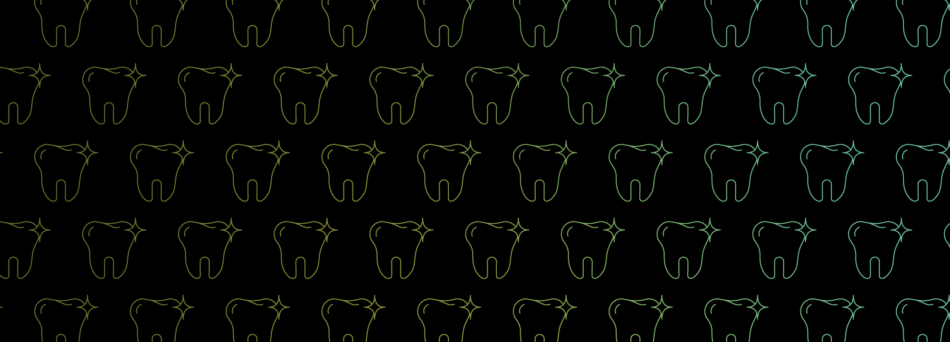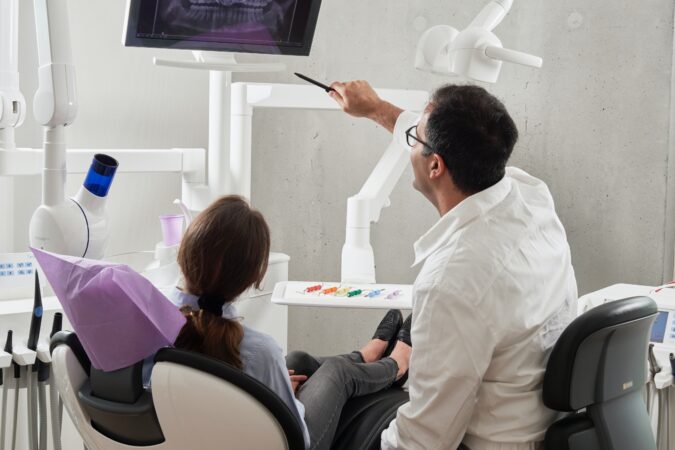
Dental Waste Disposal
Dental waste management is essential for every dentist, whether you run a single or multi-chair clinic. As most dental waste is a form of clinical waste that may be infectious and hazardous in certain cases, arranging safe and proper storage, collection, and disposal should be a priority area for all dentists.
Dental waste disposal must be done in a way that’s fully compliant with the relevant laws on clinical and hazardous waste. If you’re unsure what the regulations require of dental waste management for your business, at Business Waste we can help with free advice and assistance.
Understand more about dental waste disposal guidelines, arrange delivery of relevant bins and bags and collections with our services from anywhere in the UK. For more information or a free quote don’t hesitate to contact us online or call 0800 211 8390 today.
Get your free quote
Get a fast FREE quote for your dental waste removal
- Free quote within 1 hr
- Any type of dental waste
- FREE bins and delivery
- We cover all of the UK
Dental waste
bins, bags, and containers
We can provide a range of free dental waste bins, bags, and containers to safely and securely store clinical, amalgam, and other waste in your practice. Use the appropriate bins and then pay for collection to arrange proper disposal of all your dental waste.
All the relevant dental waste bins, bags, and containers are designed to hold specific waste types in line with any regulations covering healthcare waste (including dental and amalgam waste). Rest assured that the waste from your dentist clinic is stored, collected, and disposed of responsibly with our bins and bags.
Discover some common waste bins, bags, and containers used for all sorts of dental waste.
Dental waste
collection
Our dental waste disposal service can deliver free bins to any dentist practice in the UK – you simply fill with the appropriate waste and pay for collection. We work with a nationwide network of licensed waste carriers who will pick up your waste bins, bags, and containers from an accessible place.
You can arrange dental waste collection on a daily, weekly, or fortnightly scheduled, based on the types and amount of waste you produce. Single-chair practices may only need weekly collections, while larger clinics might want dental hazardous waste disposal daily.
One of our licensed waste carriers will collect and transport your dentist waste to a nearby and appropriate facility for treatment and disposal. This way you can rest assured that any kind of waste – from gypsum dental waste to amalgam, PPE, and more – is removed in line with all relevant regulations.
Get a free quote for dental waste collection wherever your practice is in the UK. Contact us online or call 0800 211 8390 to arrange collection. Or speak to one of our expert team about your dental waste management needs and they’ll be more than happy to answer all your questions.
How does dental
waste collection work?
-
Select your free bins
It’s quick and easy to organise commercial waste collection for your business.
Simply start by telling us the:
- Type of waste you need removing
- Size of bins you require
- Number of bins you want
We’ll provide you with a free quote.
-
Arrange delivery
When you’re happy with the type, number, and size of free bins, tell us when you need your bins delivering.
Let us know about any access issues where you want the bins delivering – such as locked gates, access codes and times. We’ll get you up and running in no time.
-
Fill up your bin
After the free bins arrive at your chosen location, fill them up with the agreed waste type.
Make sure you remain within any weight limits for the specific waste type and bin size.
-
Get your business waste collected
We’ll arrange waste collection at a time and frequency to suit you and the amount of waste you have.
As featured in…
What is
dental waste?
Whether your dentist is small or large, public or private, we can provide dental waste management services to meet the requirements of your business. Our professional waste management services provide collection and disposal services for the following types of common dentist waste:
- Amalgam waste
- Sharps
- Lead foils
- X-ray film, chemicals, equipment, fixer and developer
- Precious metals
- Pharmaceutical and anaesthetics
- Dental moulds
- Hard dental waste
Generally, dental waste can be classified into two types of waste – clinical and amalgam.

Dental clinical waste
Clinical dental waste can typically be hazardous and may be harmful to either the people in contact with the waste or the environment. Examples of dental clinical waste include:
- Human tissue
- Blood
- Swabs
- Dressings
- Sharps – such as scalpels and needles
- Pharmaceutical products
Dental amalgam waste
Dental amalgam waste is any other waste that may contain amalgam. This can be incredibly harmful to humans due to the presence of mercury. It usually needs placing inside a container with a mercury suppressant. Amalgam waste must always be handled and collected by a fully authorised and credible waste management company.
How is dental
waste disposed?
Disposal of dental waste depends on the type of waste. A large amount of the waste that dentists produce must be treated differently from other types of waste. For example, sharps, pharmaceutical and anaesthetic waste must be handled and disposed of by a qualified and competent individual.
These types of hazardous waste that occur in the dentistry setting must be managed appropriately, so they don’t cause unnecessary harm to human health, animals, and the environment. For example, X-ray film packets contain lead foils that may be toxic and require secure storage and disposal.
Certain dental waste types may be incinerated as the safest option, while others can be treated and potentially reused in some form. Learn more about hazardous waste disposal and clinical waste disposal.

Dental waste
disposal guidelines
Dental practices produce a wide array of waste types. It’s essential that these are separated and stored in appropriate bins, bags, or containers to protect human health and avoid the risk of cross contamination. There are colour coded clinical waste bins and bags to help you easily separate and store the medical waste your dentist practice produces. These are:
- Dental (amalgam) waste – white clinical waste bins
- Anatomical waste – red clinical waste bags
- Clinical non-infectious waste – yellow and black clinical waste bags
- Cytotoxic and cytostatic waste – purple waste bags
- Highly infectious hazardous waste – yellow clinical waste bags
- Clinical infectious waste – orange clinical waste bags
All dental amalgam waste should stay in a specialist dental container with a mercury suppressant. This reduces the risk of harm to your dental team from the mercury vapours. Dental practices also need an amalgam separator installed to capture any amalgam particulates in wastewater – fitted both to the dental chair and dirty sink.
In the UK, the Department of Health has guidelines for the safe management of healthcare waste that apply to dentists. Failure to safely store, remove, and dispose of any dental waste could result in fines for your practice. Speak to our team to ensure your business remains compliant.
Read our reviews
James was very helpful and to be honest since starting with this company the service has been excellent.Christeen Norfolk
Dental waste
FAQS
-
What is special waste in dentistry?
Special waste in dentistry is waste that may cause contagion or infection. This type of waste is usually deemed to be hazardous and should only be collected and disposed of by an authorised company. The most obvious risk that may come from special waste in dentistry is the spread of infectious diseases such as HIV or TB.
-
What waste goes in a yellow bag?
Yellow bags are used for infectious waste and contain items that need to be incinerated. This could include teeth, teeth with fillings, medicines and anaesthetics, used or unused syringes, as well as highly infectious waste such as infected blood. Yellow bags must only be used for high-risk waste and must be collected and disposed of on a frequent basis.
-
How do you dispose of lead aprons?
You can dispose of a lead apron by contacting your local recycling company. Scrap metal companies can often take waste lead aprons and recycle them to create new lead aprons. If this isn’t an option, you can contact a hazardous waste handling company to pick up the apron and dispose of it appropriately.
Failing that, you can also bring the apron to landfill, though depending on the apron’s toxicity this may not be possible. The landfill site is required to test the apron for its toxicity before accepting it for disposal. If in doubt, contact the apron’s original manufacturer to seek further guidance or to check if they offer a disposal service.
-
What is gypsum dental waste?
Gypsum is a material commonly used to make dental moulds. Gypsum dental waste is therefore used, damaged, contaminated, or unusable moulds that require disposal. Non-infectious gypsum waste can be incinerated or sometimes recovered. Gypsum dental waste cannot go to landfill as it may biodegrade and release toxins that are harmful to human and environmental health.
-
How do dentists dispose of teeth?
Teeth that don’t contain amalgam can be disposed of in a sharps bin. Before disposal they should be treated with appropriate chemicals and disinfectants to ensure any teeth are safe for handling. Teeth that contain amalgam can be disposed of in a white dental amalgam bin, which will be sent for appropriate treatment and disposal.
Get a fast and free dental waste disposal quote
Get a fast FREE quote for dental waste collection
- Free quote within 1 hr
- Any type of dentist waste
- FREE bins and delivery
- We cover all of the UK